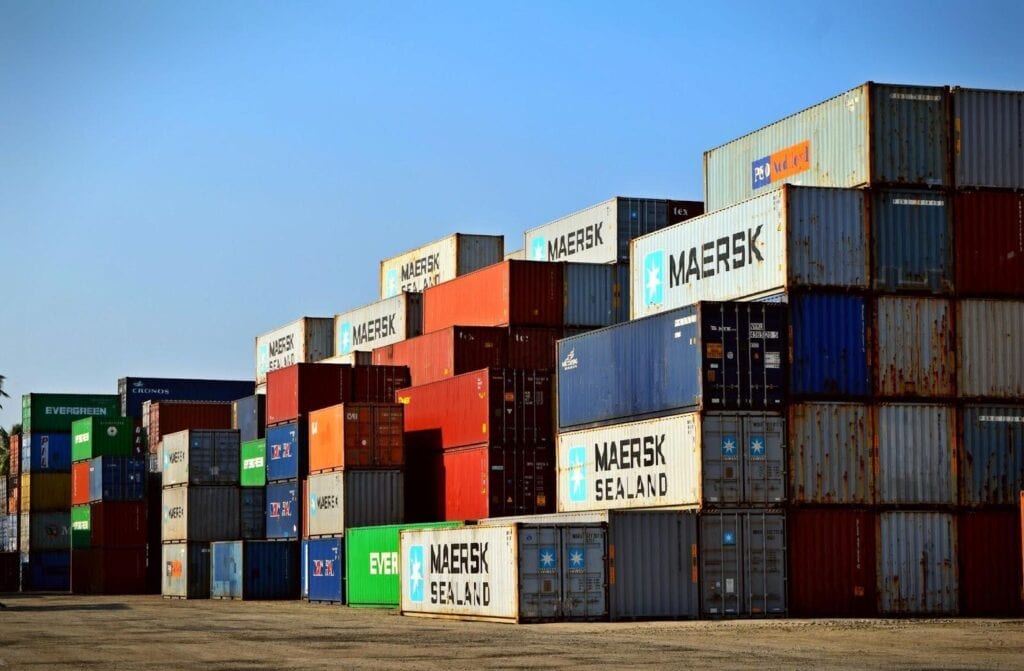Fourth Party Logistics: Definition, Advantages, and Disadvantages

Unlike third-party logistics (3PL) providers, which focus on specific logistics tasks like warehousing, shipping, and order fulfillment, 4PL providers manage and optimize the entire supply chain.
The logistics world is expanding, and with the rise of globalization, the need for advanced supply chain solutions has become paramount.
Third-party and fourth-party logistics concepts have taken center stage as businesses strive for greater efficiency.
This article delves deep into fourth-party logistics, unpacking its intricacies, its crucial role in logistics strategies, and how it seamlessly integrates into the broader supply chain management spectrum.
4PL Fourth-Party Logistics
Fourth-party logistics, commonly known as 4PL, represents a higher level of supply chain management. Unlike third-party logistics (3PL) providers, which focus on specific logistics tasks like warehousing, shipping, and order fulfillment, 4PL providers manage and optimize the entire supply chain.
They act as a single point of contact between a company and multiple logistics service providers. This means businesses only deal with one external service provider, the 4PL, which oversees and coordinates various logistics services from third-party providers.
This model provides businesses with integrated supply chain services, facilitating the logistics process from start to finish. 4PL is particularly significant in industries experiencing rapid growth, where the demands on the supply chain network are complex and constantly evolving.
The critical differences between 3PL and 4PL lie in their approach: while 3PL offers specific services, 4PL provides a holistic approach, overseeing the logistics of the business from a top-down perspective.
Benefits of Using 4PL
- Holistic Oversight: 4PL providers oversee the entire supply chain, ensuring a streamlined logistics process.
- Cost-Efficiency: With only one point of contact, businesses can save money on negotiations and managing multiple partners.
- Optimized Solutions: Leveraging historical data, 4PL providers can forecast customer demand, ensuring the logistics services are always ahead of the curve.
- Integrated Services: All logistics tasks are harmonized for efficiency, from inventory management to customer communications.
Disadvantages of Using 4PL
- Less Control: Since 4PLs handle most logistics tasks, businesses may need more control over certain aspects of their supply chain.
- Potential Higher Costs: Premium, all-inclusive services might come at a higher price tag compared to selecting individual third-party logistics services.
- Dependency: Over-reliance on a single entity for all logistics needs can pose risks if the 4PL provider faces challenges.
4PL Logistics: an Industry-Specific Tool

Specific industries find the services of 4PL logistics providers particularly advantageous. In the Medical sector, for instance, where timely delivery and quality control of medical devices are critical, 4PLs ensure efficient coordination amongst multiple partners.
Similarly, the Field Service industry, which often relies on rapid responses, benefits from 4PL’s real-time inventory tracking and customer communications management. Moreover, E-Commerce platforms, incredibly fast-growing ecommerce businesses, find 4PLs invaluable.
The scalability offered by 4PLs is ideal for these platforms, as the logistics provider can adapt services as the business grows, ensuring customer satisfaction remains high while managing packing and shipping orders efficiently.
Technology and Its Role in Shipping and 4PL
Technology is undeniably a linchpin in today’s logistics landscape, with 4PL providers relying heavily on technological innovations to enhance their offerings.
From real-time inventory tracking to optimizing the order fulfillment process and leveraging historical data to anticipate customer demand, technology empowers 4PLs to provide their clients with unparalleled logistics solutions.
Advanced AI algorithms and machine learning play a pivotal role in predicting shipping costs, while blockchain technologies ensure secure and transparent transactions across the supply chain network.
Moreover, the rise of digital platforms and integrative tools has facilitated 4PL providers’ seamless collaboration with a company’s in-house team, streamlining communications and operations.
This interplay of advanced tech ensures that the 4PL logistics services remain at the forefront, enabling businesses to adeptly manage the intricacies of modern supply chains and stay competitive in an ever-evolving marketplace.
Examples of Successful 4PL Providers
Several 4PL providers have made a mark in logistics by offering comprehensive, top-notch services. When leveraged correctly, these providers have showcased how 4PL can significantly optimize a company’s supply chain operations.
Accenture: This global management consulting giant has a thriving 4PL division. Their logistics services are tailored using advanced analytics and deep industry expertise. Their 4PL case studies show that Accenture has helped many businesses integrate fragmented supply chains, increasing efficiency and reducing costs.
DHL Supply Chain: As a subsidiary of the global shipping and logistics leader DHL, their 4PL division stands out. DHL offers end-to-end supply chain solutions and has successfully managed complex logistics operations for clients worldwide, ranging from automotive to consumer sectors.
Capgemini: Renowned for its consulting and technology services, Capgemini has ventured into the 4PL space, offering solutions under its “Smart Operations” banner. Their 4PL solutions utilize digital innovation, providing real-world examples of how businesses can gain agility and visibility in their supply chains.
Examples of Successful 4PL Implementations
The effectiveness of 4PL can best be illustrated through real-world cases where businesses, big or small, have reaped the benefits of this advanced logistics model.
Unilever: This multinational consumer goods company partnered with a 4PL provider to manage its intricate supply chain across multiple countries. The result was a 10% reduction in transport costs and a 5% reduction in inventory holdings, showcasing a classic 4PL success story.
Caterpillar: The construction machinery and equipment giant embraced 4PL to manage its parts distribution across North America. The move led to streamlined operations, reduced delivery times, and enhanced customer service, underscoring the power of practical 4PL implementations in supply chain management.
HP (Hewlett-Packard): HP’s consumer electronics supply chain was renowned for its complexity. Adopting a 4PL model gave them a centralized view of their supply chain. This centralization helped HP reduce shipping times, minimize holding costs, and adapt quickly to market changes, becoming a paragon of 4PL’s practical applications.
Each of these companies’ experiences underscores the potential benefits and practical applications of 4PL, affirming its growing importance in logistics and supply chain management.
Choosing 4PL over 3PL
When businesses evaluate their supply chain needs, the decision between 4PL and 3PL often comes to the fore. 3PL provides specific logistics services like warehousing, transportation, and packing orders.
For instance, a startup business might turn to 3PL for straightforward solutions like storing inventory and shipping orders. On the other hand, 4PL offers an integrated approach, overseeing the entire supply chain from end to end.
More significant or fast-growing e-commerce businesses experiencing rapid growth and dealing with a complex supply chain network prefer 4PL as it involves a single point of contact that manages multiple partners, including third-party logistics providers, freight forwarders, and parcel carriers.
This holistic approach optimizes logistics tasks, benefiting those with intricate supply chain solutions needs.
FAQs
Dive into the most common questions about 4PL with our concise answers.
What is a fourth-party logistics example?
4PL providers, like Accenture or DHL Supply Chain, offer end-to-end supply chain solutions, managing everything from warehousing to transportation.
What is 4PL vs 3PL?
4PL oversees the entire supply chain, while 3PL provides specific logistics services like warehousing and transportation.
Does Amazon or UPS use 4PL or 3PL?
Amazon and UPS primarily operate as 3PL providers but collaborate with 4PL partners for specific end-to-end supply chain solutions.
4PL Logistics Process Summary
Fourth-party logistics (4PL) offers businesses an integrated approach to their entire supply chain, from warehousing to transportation. Unlike 3PL, which provides specific logistics services, 4PL streamlines and oversees the logistics process, offering a centralized solution for complex supply chain management needs.
Whether managing inventory or navigating multiple partners, 4PL provides the expertise and single point of coordination necessary for business success.
